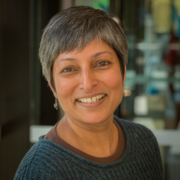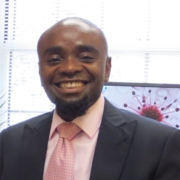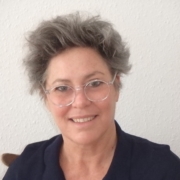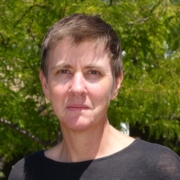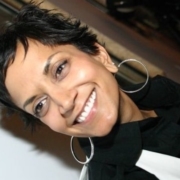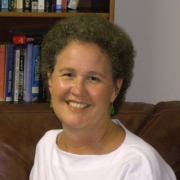Arathi Sriprakash, Sophie Rudolph & Jessica Gerrard
Learning Whiteness
Today we explore the issue of whiteness and how it is learned in and beyond schools in Australia. My guests are Arathi Sriprakash, Sophie Rudolph and Jessica Gerrard. They have written the new book, Learning Whiteness: Education and the settler Colonial State, which was published by Pluto Press.
Arathi Sriprakash is a Professor of Education at the University of Bristol. Sophie Rudolph is a Senior Lecturer in the Melbourne Graduate School of Education at the University of Melbourne where Jessica Gerrard is an Associate Professor.
Citation: Sriprakash, Arathi, Rudolph, Sophie, & Gerrard, Jessica, interview with Will Brehm, FreshEd, 280, podcast audio, May 23, 2022. https://freshedpodcast.com/sriprakash-rudolph-gerrard/
Will Brehm 0:47
Arathi Sriprakash, Sophie Rudolph, and Jessica Gerard, welcome to FreshEd.
Arathi Sriprakash 0:51
Thanks for having us, Will.
Sophie Rudolph 0:52
Hi, Will, thanks. I’d like to acknowledge that I’m joining the conversation today from the lands of the Wurundjeri Woi Wurrung people and the Bunurong people of the Kulin Nation. I’d like to recognize Elder’s past, present and future and recognize that this land has never been ceded.
Jessica Gerrard 1:10
Hi, I’d also like to acknowledge that I’m coming from Wurundjeri land and to acknowledge Elders past, present and emerging. And to acknowledge that this land always was and always will be Aboriginal land.
Will Brehm 1:22
So, congratulations on your new co-written book. It’s really fantastic. And I’d like to just jump right in with an example that you sort of referred to a few times in your book. And this is in 2004, the Australian Prime Minister John Howard, who pushed for legislation that would require all schools to fly a national flag or the Australian flag inside the school grounds. And it was sort of done in conjunction with this new curriculum that the Howard government was pushing that sort of pushed this so-called values education. So, I guess to start, Sophie, how do you understand this particular historical moment in Australia?
Sophie Rudolph 2:00
So, this was a moment, one of many, I guess, where we see the settler colonial state trying to assert its dominance through what Aileen Moreton-Robinson would call the white possessive. So, this is where the invading group tried to make the country that they’re occupying into a white possession. And Moreton-Robinson charts how this happens in lots of different ways. It can happen materially through dispossession and enclosure, and I guess we kind of see the flag moment -so, requiring all government schools to fly the Australian flag as a symbol of national sovereignty, I guess, and to have that attached to school funding- as this material illustration of the white possessive. And that this has affective dimensions to it as well. So, it encourages citizens to see that flag flying and to see that symbol of white possession. And the values aspect to it, I guess, is also a kind of epistemological aspect. So, the knowledge of the occupying group is seen as dominant. So, this is a useful illustration with and in looking at those aspects of racial dominance. And this was also a political period where the government attempted to secure the borders of the white nation through distancing itself from a role in indigenous justice and hardening its borders to refugees. So, it’s quite a potent kind of symbolic moment.
Will Brehm 3:41
It’s a really fascinating moment, definitely. And, you know, to see that flag on school grounds amongst this larger sort of political context that you’re raising plus this history. But I guess one of the issues that needs to be a bit unpacked is this notion of whiteness. Like, if it is a symbol of white possessiveness that flag on school grounds, then the question is, well, what is whiteness?
Arathi Sriprakash 4:06
In drawing on that example, one of the things that we’re showing is that this wasn’t actually an extraordinary moment in the history of the Australian settler colonial state. But one of the points that we make in the book is that these kinds of moments are part of the very fabric of the state. There is a continual assertion of what Aileen Moreton-Robinson has called the white possessive. So, then thinking about that being the fabric of the settler colonial state gets us thinking about whiteness as a social and political force. One that the nation is so profoundly structured around. So, what we’re trying to do in the book is not necessarily think about whiteness only as an identity, only as a social construction, only as a kind of structuring force but actually all of these things. How we’re approaching it is understanding the ways in which the systems of racial domination through which the settler colonial state finds its logic is sustained through racial hierarchies. And whiteness, we’re naming, is at the center of this. Whiteness helps us name these forces of racial domination. One of the things that I’ve been reflecting on through the process of writing this book is it’s limiting to think about whiteness as only attached to people. In fact, I myself am not racialized as white. And yet my own life has been profoundly shaped by whiteness. It’s not only been affected by its domination, but I’m also enmeshed in its perpetuation. So, that’s what kind of brought us thinking about, how is this social force of whiteness is learnt? How is it relayed, remade, produced, as well as resisted over time?
Sophie Rudolph 5:43
I’d like to say, I think it’s really important to remember that we are all constructed within this system of domination. So, regardless of how we are racialized, we’re all impacted by the system of white domination. And I think that’s one of the things that we’re trying to help us all to see in this book, is that the system of white domination impacts us all. And it does that in different ways. And that’s why it’s hard to actually define it in a really clear way because the way that it operates depends on the context, the sociality, the interpersonal relationships, the power dynamics within that. Yeah. So, it’s hard to sort of define it.
Will Brehm 6:31
I think that’s right. You know, I mean, even some of the words that have been used, right? So, whiteness is a system, it’s a force, it’s a structure, it’s a social construction, it’s an identity. It becomes a rather complex thing or process, let’s say. And so, I guess another way to approach it then is to think about if there’s variations of and within whiteness.
Jessica Gerrard 6:52
I think that that’s something that we’re definitely attuned to in this book. Because we see whiteness as an educative project of the settler state, there is no uniform fixed understanding of whiteness. It constantly needs to be secured and resecured, made and remade in every moment. And in fact, to get back to the flag not to over emphasize that event, because as we were saying, it’s not an extraordinary event. But to say that something like that indicates the need for the settler state to be constantly asserting itself as the kind of sovereign leaders in a country that has unceded lands. And so, there’s a complexity and illegitimacy there at the heart of whiteness, which makes it always mutable, constantly mobile. It does do different things in different places, and to different people. And it is really important not to shy away from that and see that as being a reason to kind of, oh, it’s just complex, full stop. But rather to move forward and try and push an understanding of what that might mean. That’s really at the center of the book. And so, part of our emphasis on the contingency of whiteness is to understand that it is resisted against. It’s not a pure dominance. And in fact, we start the book with two quotes, one of which is by Dujuan Hoosan, a 12-year-old from Arrernte and Garrwa Country, speaking to the United Nations about his experience of schooling where his entire history, existence, culture is erased by a curriculum, by a schooling system that finds no place for him and his culture and his being. And again, I think it’s a repeated event. This is not an extraordinary kind of, let’s pull out this one moment. But actually, this is the constant remaking that’s occurring in every school, across the country in different ways, and with different effect. And one of the things that we’re thinking about with trying to kind of come up with a framing of whiteness is that one of the important parts of it, it’s defined through who it understands as it’s being it’s ‘other’. So, it moves in relationship to who it’s fearful of, or gathering at a particular time. So, we can see historically very different understandings of whiteness and how it’s formed and the kinds of cultures that might constitute it. So, it’s definitely mobile. It’s definitely mutable, definitely constantly changing, and shifting, and that’s part of its elusive nature that needs to be addressed.
Will Brehm 6:55
Can you give some examples of historically how it’s changed in Australia, particularly?
Jessica Gerrard 9:20
I think I’ll start by answering that -and I will get to Australia- but I think it is important to address Australian history. And again, this is one of the things that we tried to do in our book, is to address it in connection with the global flows of colonialism and settler colonialism. It’s impossible to talk about settler colonialism, whiteness, colonialism in Australia without thinking about what’s happening in Britain. And in fact, one of the things I was thinking about when we were first talking about is the history of Empire Day in Britain, which was instituted at the turn of the century for a similar kind of a fear that the Empire wasn’t being celebrated enough. So, they kind of forced school children to parade around their schools. Another example of this attempt to secure the logics of colonialism which impact British children as much as they might do Australian children at the same time. But in Australia, we can see a constant movement around who is feared and therefore how whiteness is secured and understood and the force of its effect. And so, waves of panic around Asian migration in the 1990’s, moves to then concerns around Middle Eastern or Lebanese migration, then a concern around Sudanese migration. You know, there’s these constant waves of concern that fix upon an ‘other’ culture or an ‘other’ existence that is really, as we try to argue, is rooted in the illegitimacy of the settler state to begin with. And we’re trying to do some connecting work here to understand how whiteness works across in different ways historically, and in the present.
Will Brehm 10:47
One of the things that I was thinking about when reading the book, and thinking about the different types of whiteness, and how it’s changed over time, particularly in relation to Australia. I was thinking back to the First Fleet, when the British Empire first came to Australia. And of course, with the First Fleet, there was a lot of convicts because that’s when Australia was sort of set up for the British Empire. But of course, the convicts on that ship, I think a lot of them were Irish, who, of course, were sort of racialized as not being white, and were anti-empire. That’s why they were being imprisoned in many ways. And how that then evolved, you know, in the Australian case, because many of those prisoners then got out of prison and were given land in Australia. And so ended up benefiting from living on that land and maybe ended up becoming racialized as white settlers. But originally were not actually conceptualized as such. And I think for me, it opened up all these possibilities of how we think about whiteness. And then the migration of say, sort of, South African whites trying to escape the collapse of Apartheid and going to Perth in Australia, for instance. There’s all these really fascinating examples of sort of different types of whiteness and how it’s changed in Australia.
Sophie Rudolph 11:56
I think that just illustrates how much context matters and how much power is part of the picture. And so, the hierarchies of race, constructed through particular political contexts. And so, you know, this is where we see colonialism and capitalism as being really important forces in constructing these hierarchies of race. And then the social and political and economic power is distributed along that false hierarchy so that those at the top have more, and those at the bottom have less. And so, then those different contexts that you’ve kind of illustrated, their range of these different contexts, position people differently in that hierarchy. And that depends then on how much power they have in that situation.
Will Brehm 12:50
How is whiteness connected to capitalism and colonialism?
Jessica Gerrard 12:54
Well, we think it’s centrally connected because it’s the means by which colonialism and capitalism took hold and was able to take force as a global, political, and economic and social reality. So, for us, we think with the idea of racial capitalism in the book, as a means to think through the connections of whiteness to capitalism and colonialism. And we see these as interconnected and interdependent, and as being essentially connected. So, for us, it’s not about what came before or kind of getting bogged down in those sorts of concerns but actually to understand their constitution and effect as racializing forces. So, as you noted before, there is a kind of a racializing tendency in capitalism in terms of creating categories of people, hierarchies of people, and that this force is produced in colonialism. And British empire and British colonialism draws on whiteness as its structuring force in order to give meaning to that and to create its power and domination.
Will Brehm 14:04
I want to dig in a little bit more. I mean, like, what specifically about capitalism is connected to this racializing and this categorizing of whiteness as the top? Because it seems to me that you could probably look at histories of communism and find something similar happening as well. So, what specifically about capitalism are we talking about?
Jessica Gerrard 14:25
So, the first thing to say would be -and to Sophie’s point before- is that context matters. So, our book is around Australia in particular, but also the connected histories to the British Empire. So, we’re not making a comment on communism. So, taking that we see that capitalism has at its heart, many of the same sorts of practices that are at the heart of colonialism. So, we talk in the book about the practice of enclosure and dispossession which is absolutely at the heart of the capitalist development in England, where peasants were thrown off their land and land was enclosed. What was once public use becomes private use. You see the exact same thing with colonialism and settler colonialism where land and people are dispossessed and enclosed. We see similar things with the extraction of value and divisions in labor. So, we see these forces as being intertwined. So, in capitalism and colonialism. And in the context of Australia, connected to the British empire through whiteness.
Will Brehm 15:28
And what about Christianity? It seems to me that that would also be a big part of issues around whiteness and in particularly Australia.
Arathi Sriprakash 15:36
Christianity hasn’t been an aspect that we explicitly foregrounded in the book, but it is implicated through the projects of British settler colonialism and capitalism. And we see this in lots of different ways. We can look, of course, to the project of mission schools of the past. But what I think becomes really interesting in the present moment is how we see a kind of sponsorship of what commentators have called a Christian worldview in educational projects. So, to give you one example, there has been in recent years very well-funded and politically powerful lobbying to install studies of Western civilization within the higher education sector in Australia. And by Western civilization, this has been explicitly connected to what conservative commentators are calling a Christian worldview. So, there is, again, that continuation of an assertion of the particular kinds of civilization worldview that is a response to the perpetually unsettled and illegitimate nature of the settler colonial state. So, it, again, comes as a reassertion of whiteness’ power.
Will Brehm 16:43
In terms of you know, issues of whiteness’ is power, in your analysis, a lot of it comes down to the state playing sort of a central role in perpetuating a particular whiteness as power. Can you explain the way in which you see the state actively involved in this process?
Arathi Sriprakash 16:59
Yes. So, we focus on the state because the way we’re seeing the state, is that it’s the ultimate instantiation of the white possessive because it claims its sovereignty against the unbroken unceded sovereignty of Indigenous peoples. So, because of this, the state is always under threat. It knows its illegitimacy. It is continually searching for ways to defend itself in the face of that illegitimacy. So, here we’re seeing that state isn’t this kind of pre-given entity or this thing that takes form without a politics. In fact, its ongoing politics gives it a strong sociality. What we mean by this is that how we understand ourselves and others in mutually determining terms is a matter of how we relate to the state. So, we are invited to learn whiteness -to deploy and practice it together- as part of our relationship with a settler colonial state. And this is why going back to Sophie’s earlier point, we are all touched by this project of whiteness, no matter how we are racialized. One of the things we do in the book is trying to understand this sociality and this politics of the state as pedagogy. So, we talk about the pedagogy of the state. And this tunes us into the ways that whiteness is made, relayed, taught, learned and imbibed across generations. I think one of the things that we’re trying to show here is in drawing attention to pedagogy of the state, we’re seeing how there is an intergenerational project at the heart of settler colonialism. It is, the settler colonial project is seeking white dominance into the future. It’s trying to secure white futurity and education, if you like, is one of the perfect sorts of institutions or vehicles for that intergenerational relay. And that’s why it’s so important to understand education’s central and violent role in the perpetuation of whiteness.
Will Brehm 18:52
Arathi, you bring up a really interesting point about issues of the settler state and Australia in particular here, and sort of this whole idea of the illegitimacy that they sort of fear and constantly having to prove themselves -the state has to prove itself. And it made me wonder, is there any difference happening between, sort of, the settler state and non-settler states where we might see structures of whiteness, also existing but maybe operating slightly differently? And just to sort of begin to understand whiteness a little bit more, maybe we need to separate out settler and non-settler states. So, is there a difference?
Sophie Rudolph 19:30
Yeah. There is a difference. And I guess we’re focusing very much on settler states, which we see is where colonizers obviously invaded and instructed and dominated and then settled and made a home. And so, scholars have talked about how there is an impulse of genocide and replacement. And so that’s what’s very specific to the settler state project and as Arathi just said before, this permanence of the settler state is significant because that is what creates the need for the intergenerational effect to constantly be needing to be reiterated and reinforced. But I guess what we’re trying to do as well in the book is to demonstrate that all states are in relationships. So, what happens in the settler state of Australia impacts and influences the kinds of projects that happen both in other settler states and in other kinds of states. So, that in Britain, for example, there is a relationship between what happens in Australia racially and what happens in Britain racially.
Will Brehm 20:51
And if we turn to education, specifically in schooling, in particular, you know, in Australia, how are schools implicated in this production of whiteness and sort of maintaining the power of whiteness?
Sophie Rudolph 21:03
I think this is an opportunity for us to think through the three lenses that we use in the book to understand racial dominance and the project of whiteness. And so, we draw very heavily on the work of Aileen Moreton-Robinson, who we mentioned earlier in the conversation, and we try and analyze and understand how the pedagogies of the state enacted through material ways -so, the racialized extractions of resources, and divisions of labor that build and sustain education systems through knowledge that allows us to look at how knowledge that challenges the legitimacy of the dominance of the settler state is denied and distorted within education systems, and feelings, which helps us to see how complex attachments and investments in feelings protect and bolster the white possessive. And so, you know, we have different examples of that. Jess, I don’t know, if you wanted to talk about some of those material examples?
Jessica Gerrard 22:06
Well, some of the things that we were trying to think through with taking a material lens is thinking about the actual production of education itself. So, not just looking at outcomes, which is often the focus on an analysis that wants to look at a material focus on education. You know, like, difference in achievements or a difference in employment outcomes. But actually, the production of education itself. The buildings, the way it’s built, who built it, how that labor is understood. Who profits off the production of those educational institutions? Whose legacies are understood to be contained with them? We have a number of universities named after great leaders in Australian history. Many of whom were great cheerleaders for public education but who were also deeply invested in the politics of eugenics, in the direct desire to eradicate Indigenous culture, Indigenous people, and in producing things like the White Australia Policy, which is quite a foundational policy moment in Australia, which existed for most of the 20th century, which was about trying to quite explicitly retain a White nation against migration and against Indigenous sovereignty. And so, there’s some really important aspects there materially to think about not just what education produces, but how it is produced, and who gets ignored in discussions around that. So, we try and highlight the labor that goes into that production and the kinds of resourcing that gets attached to that and that education produces.
Will Brehm 23:45
In the book, you also sort of talk about how that production of whiteness also sort of creates futures of whiteness, I think is the term you use. And one of the examples you point to is Western Sydney University sort of leasing out some of its high-rise buildings as a way to sort of perpetuate futures of whiteness. Can you explain how that actually works in your mind conceptually?
Jessica Gerrard 24:07
So, there’s a couple of things here. So, part of it is about what we’re trying to do is problematize some taken for granted assumptions around public institutions, like universities. So, often we think about them -and there’s a general defense of them against neoliberal policies and we’ve got a stalwart support of them. And what we’re trying to point to is the ways in which these universities have within them, the presumptive white possessive. They are a part of the claiming of land that takes no account of Indigenous sovereignty. And there’s some really interesting work in the US. Sharon Stein has written about this around the land grants in the US that is often colloquially called the “land grabs” because it was all about taking Indigenous land for public so-called good and then off they go and proceed. And in the contemporary space, not only is that completely disregarding sovereignty, when universities turn into corporations, there’s a re-embedding -and this is where the futurity comes into it. A kind of a reassertion of the white possessive, and the accrual of capital that Aileen Moreton-Robinson talks about in their claim to that land and what they’re going to do with it. And Davarian Baldwin has written a fabulous book called, The Shadow of the Ivory Tower, again in the US context, which talks about how universities relate to their neighborhoods and their communities and how in actuality, their corporate practices of expanding within communities, of policing their surrounding neighborhoods is highly problematic and is not addressing justice or equality or any of those sorts of things but it’s actually re-entrenching these problematic practices and cultures of white domination.
Will Brehm 25:56
Your book is called Learning Whiteness, and it made me think, is it possible to unlearn whiteness? So, Arathi, I mean, by way of conclusion, is that even a possibility to unlearn whiteness given all the different examples that you mentioned in this conversation thus far?
Arathi Sriprakash 26:14
Thanks, Will. It’s a great question. We actually use the term unlearning in the book in our concluding chapter, partly as a provocation. Because it’s not as simple as one sitting down and rewiring oneself or reading a book and thinking, “Right, I fixed it, that’s job done”. But what we’re pointing to in thinking about unlearning whiteness is the radical change that’s needed across all the dimensions that are involved in learning whiteness. So, as we’ve been talking about, the book explores the material dimensions of learning whiteness, the epistemic dimensions of learning whiteness, and the affective dimensions of learning whiteness. These are all active investments in securing whiteness into the future. So, unlearning whiteness to us means rethinking the dominance of whiteness across all of these dimensions. One of the things that we do in the concluding chapter is signpost. We don’t offer a kind of conclusive template for change, or certainly not a 10-point plan for the future. But what we do in that concluding chapter, is gesture towards a reparative agenda to think about, what would futures of education look like if we took seriously the past and present harms of whiteness in the settler colonial state of Australia and attempted to repair them. Not in the sense of a simple fix but in a sense of over radical transformation across the material, affective, and epistemic.
Sophie Rudolph 27:44
Yeah. But also, that it’s a collective project. That we, as three people, can’t say this is how it should be. That it is a social, political and collective project. And that, particularly as settlers, we can’t say what Indigenous people are going to want in terms of a future of reparations, but we can be part of that. We still have a responsibility to be part of that process, and to listen and to be engaged, and to be invested in futures that are divested from whiteness.
Jessica Gerrard 28:27
And perhaps it’s also about an opening -that we do end the book explicitly on an opening because we feel like a commitment to unlearning whiteness is a commitment and an invitation to a future that we are yet to know. And that’s an important part of this process. That we can’t define it. And to define it in these terms right now wouldn’t be the right definition.
Will Brehm 28:56
Well, Arathi, Sophie, and Jessica, thank you so much for joining FreshEd today. It really was a pleasure to talk and congratulations on the new book.
Want to help translate this show? Please contact info@freshedpodcast.com
Guest Publications/Projects
Learning Whiteness Education and the Settler Colonial State
Education and Racial Capitalism
Learning with the Past: Racism, Education and Reparative Futures
Indigenous Educational Debates in 1960s Australia
The Impact of Racism on the Schooling Experiences of Aboriginal and Torres Strait Islander Students
Contested Citizenship Education in Settler Colonies on First Nations Land
Mentioned Resources
Bunurong People of the Kulin Nation
John Howard’s “Nation”: Multiculturalism, Citizenship, and Identity
The White Possessive – Aileen Moreton-Robinson
Dujuan Hoosan’s address to the UN
In the Shadow of the Ivory Tower – Davarian Baldwin
Recommended
White Australia: The Fears of Others
Multiculturalism, Whiteness and Otherness in Australia
Constructing Whiteness in the Australian Adventure Story
Narratives of race and Nation: Everyday Whiteness in Australia
Whiteness, Morality, and Christianity in Australia
Whiteness and Social Change: Remnant Colonialisms and White Civility in Australia and Canada
Producing and Consuming Whiteness in Australia
Have any useful resources related to this show? Please send them to info@freshedpodcast.com

